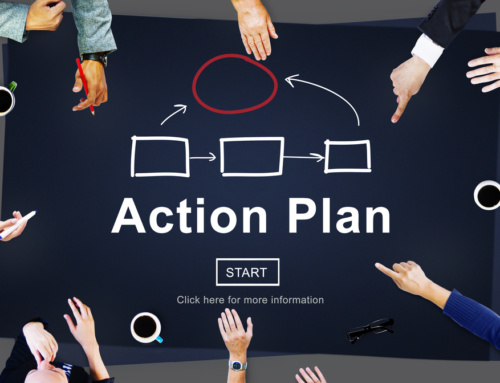I’ve long suspected the entire leadership training industrial complex (OK, that’s a stretch label, but you get the point) would be rendered obsolete if someone would highlight the one big secret behavior hiding in plain sight and free for all of us to use.
This secret behavior is the common thread that binds the over 70,000 books that appear in a search on “leadership” at Amazon.
It’s the reason behind the need for billions of dollars annually in training.
And, the absence of this behavior is the root cause of many (read: most) workplace problems, countless disciplinary issues, chronic disengagement, and a solid percentage point of annual global growth. (I made that last fact up …it’s fake news, but the rest holds.)
This secret hiding in plain sight is: respect. As in: treat everyone you encounter, ever single time with nothing but! (for emphasis: Darn-It!)
When Respect is Missing It All Goes Bad
Think about a time in your workplace when you were on the receiving end of the opposite of respect. For some, you don’t have to go back more than twenty minutes to focus on an encounter that oozed disrespect.
How did you feel in the moment?
How did you feel coming out of the encounter?
How embedded in your daily highlight reel in your mind is this moment?
What are the odds you will be having the conversation you should have had with this person when you are staring in the mirror getting ready for work tomorrow?
What emotional state will you be in when you show up at work tomorrow?
Let me guess…
Being disrespected feels crappy.
You were either deflated, angry or both at the moment.
You could win the Nobel Prize for Peace on the same day and the thought that would dominate your mental highlight reel that night would be the moment you were treated with disrespect.
You will definitely be holding a conversation with this person when you’re staring in the mirror tomorrow morning.
And yes, you’ll show back up at work playing angry or at a minimum wounded and operating somewhere well-south of your maximum self.
It’s Not Just Managers Engaging in Malpractice—We All Own the Respect Issue
Somewhere in our past work experiences, we can summon the face and behaviors of an individual who navigated the hallways and conference rooms with the impact of a Dementor in the Harry Potter stories. However, it’s not just these dark characters that breed disrespect. Our behaviors in our daily interactions exude a powerful force on the working environment.
Not paying full attention to someone, failing to take the time to step into their shoes and empathize with their situation, or subtly or not so subtly judging people’s ideas in brainstorming sessions all are forms of disrespect, and all feed the dysfunction dragon in our workplaces.
We’re Not Talking the Formula to Coca Cola—6 Key Behaviors to Display Respect
While the formula for Coca Cola is allegedly locked in a vault somewhere around Atlanta, the ingredients for sowing and showing respect are right out there and free for everyone to use.
1. Shift your style from “I’m here!” to “You’re here!”
Individuals who approach others with a genuine enthusiasm for being in their company set the tone for empathetic, constructive engagements. (I learned this from an industry leader who always walked into a setting exuding the attitude of “You’re here!” and greeted every individual from the CEO to the lowest ranking person with energy and respect. It took my breath away observing him.)
2. Care!
Yes, it’s that simple. Care! (I’m so tempted to put a Darn-It! here.)
From the lessons learned about leading in dangerous situations, it turns out one of the critical issues for building group performance and cohesion is the leader showing they genuinely care about the welfare and safety of others. Caring is free. Bring caring into your working environment.
3. Strive to View Every Situation from Their Perspective
Too many workplace engagements derail over the “I want” issue. While you probably do want something, including support, resources, or change, your perspective doesn’t really matter to the other individual. Elevate your empathy quotient and view every issue or request from their perspective and ask their help for designing an approach.
4. Listen. Fiercely!
There’s no easier and more potent form of showing respect than listening to someone with your mind, eyes, body, and every other part of your being. Shut up in your mind, quit thinking about your counter-point or response, and focus on the other person and their message. Then ask questions and listen some more. You’ll be amazed at how much you learn and how easy it is to build solutions when you listen with all of your mental and physical faculties.
5. Don’t Disregard Their History
One of the most common respect transgressions is the new manager or new party to the situation showing disdain for prior approaches or the history of the individual. We value ourselves in the context of our unique histories, and when someone pokes at that, it threatens our sense of self.
6. Create Feedback Discussions, Not Monologues
Kudos if you give feedback regularly. That’s rare, and good people like feedback as a means of strengthening and growing as professionals. However, if your feedback discussions don’t literally become discussions, you’re leaving respect out of the equation.
A few years ago in a workshop, I watched as an experienced manager delivered text-book quality feedback in a role-play situation. It was perfect, except for one crucial issue. She forgot to involve the other party in the situation. It was an articulate, respectful monologue that left way too much respect on the table by not including the other party.
How Hard Is This Respect Thing?
It’s not so difficult. Take responsibility for yourself and your actions promoting respect in the workplace. Strive to view the situation from their vantage point. Show you genuinely care about their safety and success. Place the spotlight on them with a “You’re here!” approach. Listen, ask, and engage. Darn-it!
The Bottom-Line for Now:
There’s a saying is attributed to either a lot of people or no one in particular. I paraphrase: Be careful for everyone you meet is waging a great battle. I love that saying. I re-read it every morning where in my best high-tech fashion, I leave it on a sticky note on my screen when I wrap up the previous evening. It may be the most truthful statement I’ve encountered as a leader because it reminds me to redouble my effort to engage at every encounter with respect.
![]()







Leave A Comment